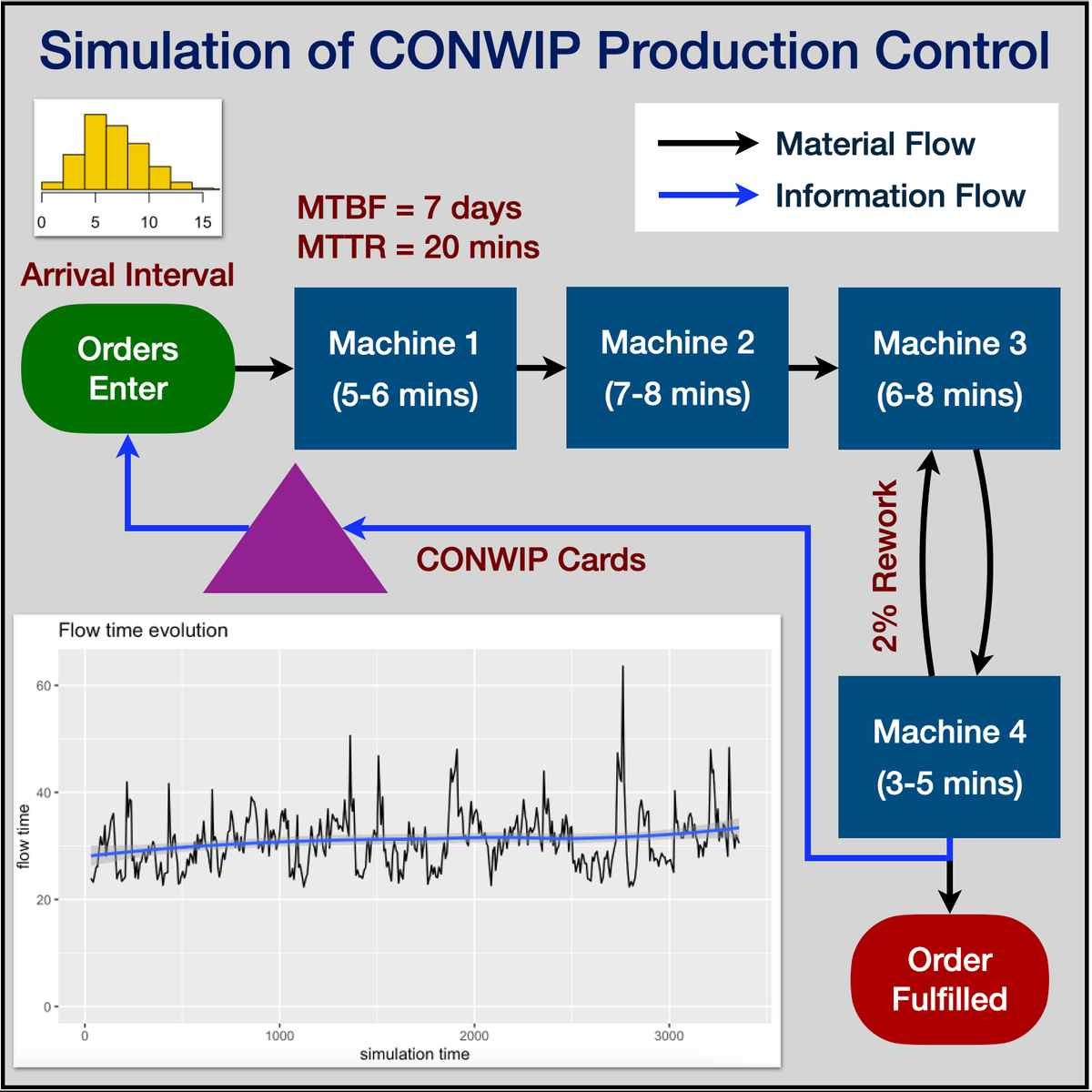Back to Courses









Leadership And Management Courses - Page 46
Showing results 451-460 of 600

Ethical Leadership Through Giving Voice to Values
This course offers an action-oriented introduction to Giving Voice to Values (or GVV), an exciting new approach to values-driven leadership development in the workplace, in business education and in life.
GVV is not about persuading people to be more ethical, but instead it starts from the premise that most of us already want to act on our values, but that we also want to feel that we have a reasonable chance of doing so effectively. Through positive, real life examples, pre-scripting, rehearsal and peer coaching, GVV builds the skill, the confidence and likelihood that we will act on our values more often and more successfully. Based on research and practice, with over 1,000 pilots in educational settings and companies on all seven continents, GVV helps answer the questions: “What if I were going to act on my values? What would I say and do? How could I be most effective?”
This course was developed at the Darden School of Business at the University of Virginia and is taught by top-ranked faculty. You will come away from GVV with an expanded toolkit, as well as practice, in a variety of methods and techniques for voicing and enacting your own values and principles. You will develop and practice leadership skills in "peer coaching” with other learners. Through cases and stories based on recognizable workplace, classroom and life values conflicts, you will apply the GVV techniques and “re-frames”, expanding your repertoire for possible action as well as identifying and rehearsing responses that are likely to be most effective. Through this practice, you will gain greater confidence and competence in voicing and enacting your values effectively.

Managing Responsibly: Practicing Sustainability, Responsibility and Ethics
Managers are increasingly confronted with issues of sustainability, responsibility and ethics. Managing responsibly is an integrative approach to sustainability, responsibility and ethics, which allows you as a manager to deal competently with such challenges. This course will facilitate your learning process to engage in changing practices to make them more sustainable, responsible, and ethically informed.
We will first introduce the context of the trend towards responsible management practices (week 1). We then explore the basics of each set of issues, sustainability (week 2), responsibility (week 3), and ethics (week 4). In week 5 you will work on your own responsible management issue/task and explore responsible management practices in an area of professional interest (e.g. strategy, entrepreneurship, innovation, organization, operations, supply chain, human resources, marketing and communication, international management, accounting and finance). In week 6 we will try to understand and experience what managing responsibly means in practice, including opportunities and challenges, and with a focus on transformative change. During these last two weeks you will work in a problem-oriented way, based on a challenging topic you have come across in your own management practice.
In the course we will form multicultural teams to learn about problems you bring forward. The course also facilitates the formation of peer networks that allow you to continue this learning experience after finishing the MOOC. The MOOC is an initiative in collaboration with the UN-supported Principles for Responsible Management Education (PRME) initiative.
Overall Learning Outcomes
1) To provide an introduction to the three constituting fields of managing responsibly: sustainability, responsibility and ethics.
2) To help apply the knowledge and insights gained from these three fields to real life problems in your own setting.
3) To identify, understand and facilitate individual action that can lead to change at the organisational and system level ...to ‘act is to move’
4) To learn to appreciate and bring together different points of view, and negotiate collective solutions to pressing problems.
Who is this MOOC for? (Recommended Background)
While this course is primarily designed for executives who want to work on particular responsible management issues and create responsible management practices, also advanced business students will find it helpful.
Suggested Readings
There are no specific required texts. However, the contents and assignments of this course have been based on the following book which might be helpful as complementary materials:
Laasch, Oliver, and R. Conway (2014). Principles of responsible management: Global sustainability, responsibility and ethics, Cengage Learning: Mason.

Management of Urban Infrastructures – part 1
Sustainability, Resilience and Efficiency are fundamental considerations for city managers in managing urban infrastructures. Today, more than 3.9 billion people, making up more than 54% of the global population, live in cities. Urbanization is expected to continue in the coming years, raising the urban population to 6.0 billion by 2045. This dramatic increase in urban populations will inevitably increase the demand for energy, mobility (transportation), water, and other urban services in every city around the world. Without functional governance and management structures that ensure efficient, resilient and sustainable performance in cities, the current urbanization growth might become a catastrophic risk threatening the quality of life of the humanity.
Sustainable development in 21st century can only be realized by introducing innovations in both management and operations of urban infrastructures systems. Developing management practices that effectively integrates the processes of urban planning with urban infrastructures planning and management is a challenging goal that many cities are struggling with nowadays, but is a must for transforming cities to sustainable and resilient engines of growth in both developing and developed economies.
This course will provide you with the basic principles of urban infrastructure management that are fundamental for building prosperous cities that are sustainable, resilient and efficient.
In order to obtain a certificate for this course, the participants have to pass four graded quizzes and complete four mandatory assignments, plus a final exam. In addition to the graded assignments students have the option to write a 7-10 page peer-reviewed case study about management of energy OR transportation system in their city (on your own choice).
The best case studies will be also evaluated by our jury at IGLUS and the authors of the 3 best case studies will win a full tuition fee waiver scholarship to enroll in the IGLUS professional training program in Spring 2017.
You can also pre-enroll in our upcoming MOOC on Smart Cities now. Find our more here:
http://iglus.org/smart-cities-mooc/

Communication Strategies for a Virtual Age
Communication has changed! The traditional rules for speaking and presenting, meeting coordination, influencing people, negotiating and selling ideas no longer apply in a world of skype, messenger, video and teleconference. This course will act as an overview on several concepts each of which could be a course of their own and our goal is to give you tools that you can practice and perfect on your own.
By the end of this course, you will be able to:
• Apply communication principles and techniques for in-person and virtual teams
• Use a science based approach to create impactful presentations
• Refine your communication style to better persuade and influence others
• Run more effective and impactful meetings
• Incorporate strategies to have positive difficult conversations and make people feel valued and listened to
*** This course will require you to record yourself speaking. Therefore you must have a phone/computer with a functional camera and microphone.***
WHO SHOULD TAKE THIS COURSE?
Anyone looking for professional and/or leadership development. This class mainly uses examples from the professional, business environment. If you are looking to advance at your current organization or to enhancing your personal value for potential employers this course is for you.
WHAT MAKES THIS COURSE EFFECTIVE?
Many educational experiences describe and explain, but in this course we will apply and demonstrate. We teach practical and proven concepts, show you how to apply them and give you opportunities to practice them in a safe and supportive environment. This course is full of opportunities to put the ideas presented into practice and test their effectiveness for yourself.
WHY SHOULD YOU TAKE THIS COURSE?
We will challenge the preconceived ideas about what it means to be part of a virtual team, and support you to be a dynamic team contributor no matter where you work. In this course you can expect to be both energized and uncomfortable – like in most experiences that result in positive growth and change!
This course is offered through the University of Toronto School of Continuing Studies (https://learn.utoronto.ca/).

Simulation of CONWIP Production Control Using R Simmer
By the end of this project, you will learn gain introductiory knowledge of Discrete Event Simulation, use R Studio and Simmer library, create statistical variables required for simulation, define process trajectory, define and assign resources, define arrivals (eg. incoming customers / work units), run simulation in R, store results in data frames, plot charts and interpret the results.

Conversations That Inspire: Coaching Learning, Leadership and Change
Coaching can inspire and motivate people to learn, change, and be effective leaders, among other roles in life. Although most attempts are “coaching for compliance” (coaching someone to your wishes or expectations), decades of behavioral and neuroscience research show us that “coaching with compassion” (coaching someone to their dreams and desires) is more effective.

Fundamentals of Project Planning and Management
Projects are all around us. Virtually every organization runs projects, either formally or informally. We are engaged in projects at home and at work. Across settings, planning principles and execution methodologies can offer ways in which projects can be run more effectively and efficiently. Project management provides organizations (and individuals) with the language and the frameworks for scoping projects, sequencing activities, utilizing resources, and minimizing risks.
This is an introductory course on the key concepts of planning and executing projects. We will identify factors that lead to project success, and learn how to plan, analyze, and manage projects. Learners will be exposed to state-of-the-art methodologies and to considering the challenges of various types of projects.

Leading Teams
In this course, you will learn how to build your team, improve teamwork and collaboration, and sustain team performance through continuous learning and improvement. Specifically, you will learn best practices for composing a team and aligning individual and team goals. You will also learn how to establish roles, build structures, and manage decision making so that your team excels. This course will also help you manage critical team processes such as conflict resolution and building trust that have a profound impact on your team’s performance. You will discuss some of the best ways to harness the productive potential of teams while mitigating the risks and traps of teamwork.
In modern organization, most of work is done in teams, yet the results of teamwork are exceptionally mixed. Many teams are poorly designed and structured, fraught with dysfunctional conflict, experience coordination breakdowns and serious motivation challenges. As a result, many teams fail to realize their potential and frequently underperform even individuals working on similar tasks. After completing this course, you will acquire a set of tools and practices that enable you to effectively set up, run, evaluate, and continuously improve your team. Such insights will both make you a more effective team leader but also a standout contributor in team settings.

Managing Uncertainty in Marketing Analytics
Marketers must make the best decisions based on the information presented to them. Rarely will they have all the information necessary to predict what consumers will do with complete certainty. By incorporating uncertainty into the decisions that they make, they can anticipate a wide range of possible outcomes and recognize the extent of uncertainty on the decisions that they make. In Incorporating Uncertainty into Marketing Decisions, learners will become familiar with different methods to recognize sources of uncertainty that may affect the marketing decisions they ultimately make. We eschew specialized software and provide learners with the foundational knowledge they need to develop sophisticated marketing models in a basic spreadsheet environment. Topics include the development and application of Monte Carlo simulations, and the use of probability distributions to characterize uncertainty.

English for Developing a Business
This course will help you learn English vocabulary related to topics of business leadership and organization. The lessons on business communication and working globally present you with some phrases and skills for interacting in business environments. This is important for your business success in English. We will also talk about important language skills such as small talk, gerunds, word forms, and comparatives. Becoming familiar with these topics and skills in English will help you as you progress on your pathway in business.
Popular Internships and Jobs by Categories
Browse
© 2024 BoostGrad | All rights reserved


